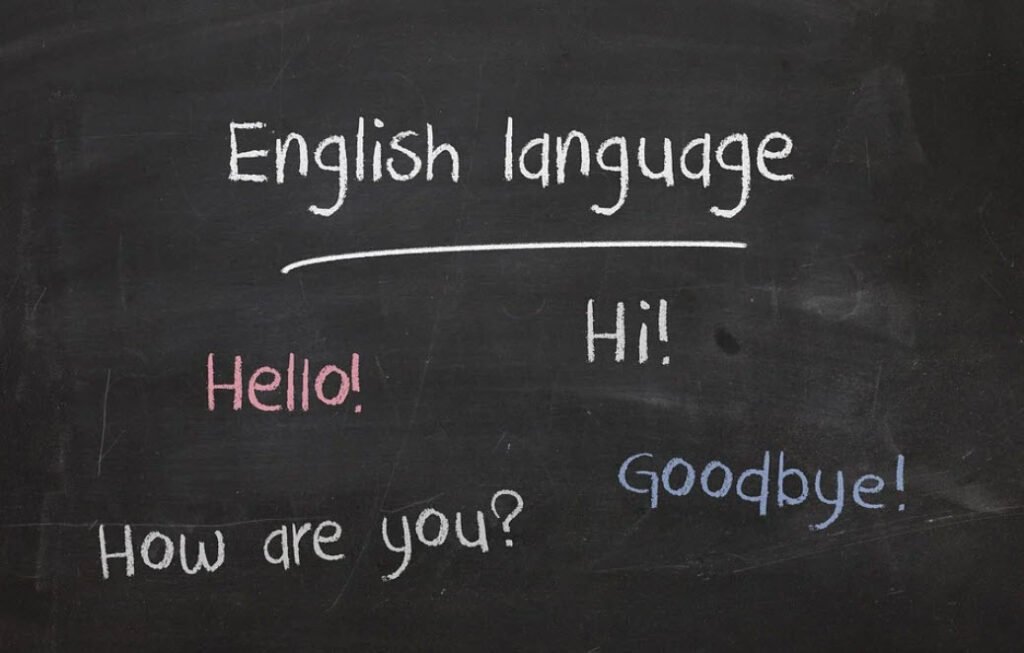This collection provides a quick review of the basic terminology used in the study of traditional English grammar. This glossary provides explanations of the meanings of grammatical common terms.
- action verb
a verb that expresses thought or activity. - active reader
a reader who actively connects with what he or she reads. - adjective
a part of speech that modifies a noun or pronoun. Adjectives answer What kind? Which one? How much? How many? about a noun. - adverb
a part of speech that modifies a verb, an adjective, or other adverb. Adverbs answer Where? When? How much? How many? about the verb, adjective, or other adverb. - chronological order
a structure of writing in which the author presents events in sequence, or the time order in which they happened. - clue phrase
a group of words that gives a clue to the author’s structure or point of view. - clue word
a word that gives a clue to the author’s structure or point of view. - colon (:)
the punctuation mark that comes before a series, a lengthy quotation, or an example, or after the salutation in a business letter. - comma (,)
the punctuation mark that separates words, phrases, clauses, and items in a series. - compare
to look for ways things are alike. - complex sentence
a sentence that is made up of an independent clause and a subordinate (dependent) clause. - compound-complex sentence
a sentence that is made up of more than one independent clause and at least one subordinate clause. - compound sentence
a sentence that contains at least two independent clauses with no subordinate (dependent) clauses. - compound subjects
two or more subjects that share the same verb in a sentence. - compound word
two or more separate words put together to create a new word. Compound words may be joined into one word or hyphenated. - conclusion
the final paragraph in an essay, in which the writer restates the main idea, summarizes the main points, and closes with a value statement to bring effective closure to the essay. - conjunction
a word that connects words or groups of words together. - connotation
the suggested or implied meaning of a word. - contrast
to look for how things are different. - dangling modifier
a word or phrase that is meant to modify a specific part of the sentence, but has not been written next to that part, thus altering the meaning of the sentence. - demonstrative pronoun
a word such as this, that, these, and those that is used to replace a specific noun in a sentence. - denotation
the exact meaning of a word. - diction
an element of writing style – the author’s choice of words. - direct object
the noun or pronoun that receives the action of the verb. - direct quotation
the exact spoken or written words of a person, enclosed in quotation marks. - effect
what happens as a result of something else. - emotional appeal
an argument that appeals to the reader’s emotions. - exclamation point (!)
the punctuation mark that indicates strong emotion. - fact
something that can be proven to be true. - figurative language
words that do not have their literal meaning. - first person
a point of view in which the narrator is a character in the story. - future tense
a verb tense that implies that something hasn’t happened yet, but will. - homonyms
two distinct words with their own meanings but spelled and pronounced alike. - homophones
two distinct words with their own meanings and spellings but pronounced alike. - hyphen (-)
the punctuation mark that joins or separates numbers, letters, syllables, and words for specific purposes. - imperative sentence
a sentence that expresses a request or command. The subject of any imperative sentence is always you, whether stated or understood. - implied main idea
a main idea that is not explicitly stated. - indefinite pronoun
a part of speech such as no one, anyone, anybody, or somebody that refers to a noun, but not a specific one. - independent clause
a group of words that contains a subject and a predicate (verb) and can stand by itself as a sentence. - infinitive
a verb written in the form of to plus the verb (e.g., to walk) that acts as a noun, an adjective, or an adverb in a sentence. - interjection
a word or phrase that expresses strong emotion or feelings. - introduction
the opening paragraph of an essay that draws the reader in and introduces the main idea and subtopics that will be explored. - literature
a form of writing such as poems, novels, short stories, and plays. - logical appeal
an argument that appeals to a reader’s sense of reason. - main idea
what a selection is mostly about. - misplaced modifier
a word or phrase that is placed too far from the noun or verb it is modifying, thus altering or confusing the meaning of the sentence. - modifier
a word that describes or clarifies another word. Adjectives modify nouns. Adverbs modify verbs, adjectives, and other adverbs. - noun
a part of speech that names a person, place, or thing (including ideas and feelings). - object of a preposition (OOP)
the noun or pronoun that follows a preposition, completing a prepositional phrase. - order of importance
a text structure in which ideas are arranged based on how important they are. - parentheses [( )]
the punctuation marks that set off information that is not necessary to the surrounding sentence or words. - participle
a verb form that can be used as an adjective. - past tense
a verb tense that implies that something has already happened. - period (.)
the punctuation mark found at the end of a declarative sentence, an imperative sentence, and an indirect question, and in abbreviations. - personal pronoun
a part of speech such as I, you, me, he, him, she, her, it, they, them, and we that refers to the speaker, the person or thing being spoken about, or the person or thing being spoken to. - perspective
the point of view from which something is written. - phrase
a group of words that does not have a subject and a verb. Phrases can act like various parts of speech (noun, verb, adjective, adverb, or preposition). - point of view
the first-person, second-person, or third-person perspective from which something is written. - predicate
the action that the subject performs in a sentence; a verb plus any objects or modifiers. - preposition
a part of speech that shows the relationship of a noun or pronoun to another word in the sentence in terms of time and/or space. - prepositional phrase
a phrase beginning with a preposition and ending with a noun or pronoun (the object of the preposition). - present tense
a verb tense that implies action happening in the present or an action that happens constantly. - pronoun
a part of speech that takes the place of a noun. - proper noun
a specific noun that is capitalized. - punctuation
a set of special symbols that helps to convey to the reader the tone and pace of a writer’s voice. - question mark (?)
the punctuation mark that appears at the end of an interrogatory sentence (a question). - quotation marks (“ ”)
the punctuation marks that indicate the exact words of a speaker or another writer or that convey irony in a writer’s words. - run-on sentence
a sentence in which two or more complete sentences have been improperly punctuated and joined together. - second person
a point of view in which the reader is directly referred to as you. - semicolon (;)
the punctuation mark that joins two independent clauses that share a similar idea and are not already joined by a conjunction. - sentence
a group of words that has a subject and a predicate and expresses a complete thought. - sentence fragment
an incomplete thought that has been punctuated as a complete sentence. - sentence structure
an element of writing style – kinds of sentences an author uses. - simple sentence
an independent clause. - subject
topic, or what the text is about. - subject-verb agreement
the rule that the subject and verb of a sentence must agree in number and in person. - subordinate clause
a group of words that has a subject and a verb but cannot stand alone as a complete thought; also known as a dependent clause. - superlative
a comparative form of an adjective or adverb that implies the greatest degree when compared to something else. Superlatives typically end with the suffix -est. - theme
the main message or messages that a piece of literature promotes. A story can have multiple themes. - thesis
a statement in an essay that conveys the main idea or point. - third person
a point of view in which the narrator is not a character in the story. - tone
the perspective from which something is written, such as seriously or humorously. - topic
the subject or main idea of an essay. - topic sentence
a sentence that expresses the main idea of a passage. - verb
a part of speech that expresses action or the condition (state of being) of the corresponding noun or pronoun. Verb tense can indicate the time of the action or condition.



